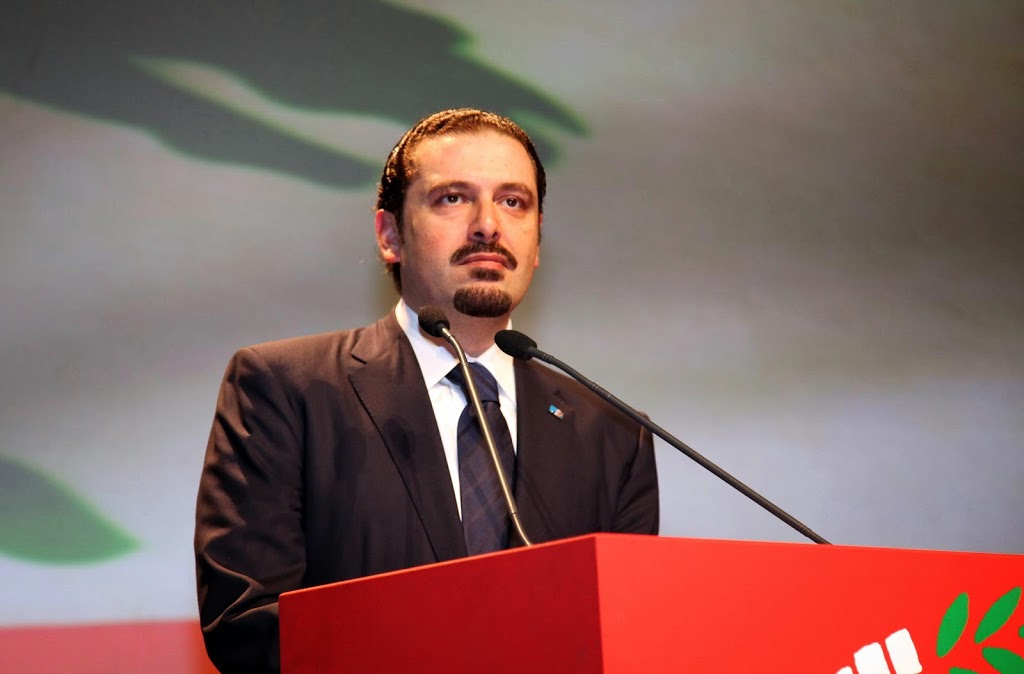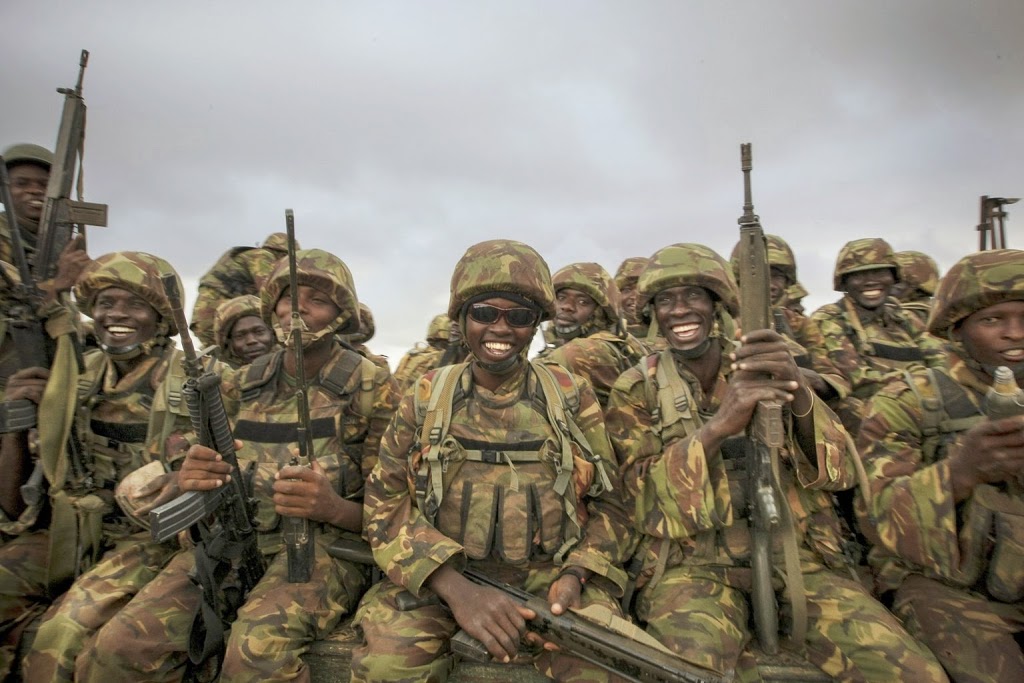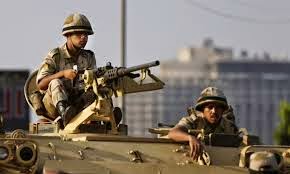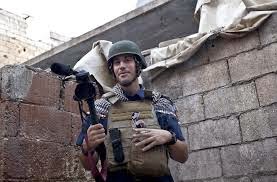Westerners join Iraqi Christian militia to fight Islamic State
Saint Michael, the archangel of battle, is tattooed across the back of a U.S. army veteran who recently returned to Iraq and joined a Christian militia fighting Islamic State in what he sees as a biblical war between good and evil.
Brett, 28, carries the same thumb-worn pocket Bible he did whilst deployed to Iraq in 2006 – a picture of the Virgin Mary tucked inside its pages and his favourite verses highlighted.
“It’s very different,” he said, asked how the experiences compared. “Here I’m fighting for a people and for a faith, and the enemy is much bigger and more brutal.”
Thousands of foreigners have flocked to Iraq and Syria in the past two years, mostly to join Islamic State, but a handful of idealistic Westerners are enlisting as well, citing frustration their governments are not doing more to combat the ultra-radical Islamists or prevent the suffering of innocents.
The militia they joined is called Dwekh Nawsha – meaning self-sacrifice in the ancient Aramaic language spoken by Christ and still used by Assyrian Christians, who consider themselves the indigenous people of Iraq.
A map on the wall in the office of the Assyrian political party affiliated with Dwekh Nawsha marks the Christian towns in northern Iraq, fanning out around the city of Mosul.
The majority are now under control of Islamic State, which overran Mosul last summer and issued am ultimatum to Christians: pay a tax, convert to Islam, or die by the sword. Most fled.
Dwekh Nawsha operates alongside Kurdish peshmerga forces to protect Christian villages on the frontline in Nineveh province.
“These are some of the only towns in Nineveh where church bells ring. In every other town the bells have gone silent, and that’s unacceptable,” said Brett, who has “The King of Nineveh” written in Arabic on the front of his army vest.
Brett, who like other foreign volunteers withheld his last name out of concern for his family’s safety, is the only one to have engaged in fighting so far.
The others, who arrived just last week, were turned back from the frontline on Friday by Kurdish security services who said they needed official authorisation.
“STOP SOME ATROCITIES”
Tim shut down his construction business in Britain last year, sold his house and bought two plane tickets to Iraq: one for himself and another for a 44-year-old American software engineer he met through the internet.
The men joined up at Dubai airport, flew to the Kurdish city of Suleimaniyah and took a taxi to Duhok, where they arrived last week.
“I’m here to make a difference and hopefully put a stop to some atrocities,” said 38-year-old Tim, who previously worked in the prison service. “I’m just an average guy from England really.”
Scott, the software engineer, served in the U.S. Army in the 1990s, but lately spent most of his time in front of a computer screen in North Carolina.
He was mesmerised by images of Islamic State militants hounding Iraq’s Yazidi minority and became fixated on the struggle for the Syrian border town of Kobani — the target of a relentless campaign by the jihadists, who were held off by the lightly armed Kurdish YPG militia, backed by U.S. air strikes.
Scott had planned to join the YPG, which has drawn a flurry of foreign recruits, but changed his mind four days before heading to the Middle East after growing suspicious of the group’s ties to the Kurdistan Workers’ Party (PKK).
He and the other volunteers worried they would not be allowed home if they were associated with the PKK, which the United States and Europe consider a terrorist organisation. They also said they disliked the group’s leftist ideology.
The only foreign woman in Dwekh Nawsha’s ranks said she had been inspired by the role of women in the YPG, but identified more closely with the “traditional” values of the Christian militia.
Wearing a baseball cap over her balaclava, she said radical Islam was at the root of many conflicts and had to be contained.
All the volunteers said they were prepared to stay in Iraq indefinitely.
“Everyone dies,” said Brett, asked about the prospect of being killed. “One of my favourite verses in the Bible says: be faithful unto death, and I shall give you the crown of life.”
Lebanon not Hezbollah has power to decide war – Hariri
Former prime minister of Lebanon and leader of the Future Movement Saad Al-Hariri said Saturday that his movement would not acknowledge any right for Hezbollah unless the latter admits the state’s right to decide war.
“Dialogue with Hezbollah is not a political luxury; it’s rather a national and Islamic commitment to defuse sectarian tensions and fill the presidential vacuum,” he said.
Al-Hariri made the comments during a ceremony to mark the 10th anniversary of the assassination of his father, late prime minister Rafiq Al-Hariri, organized by the Future Movement at Biel palace, downtown Beirut.
The ceremony gathered outgoing President Michel Sleiman, House Speaker Nabih Berri’s representative MP Abdullatif Zein, Prime Minister Tammam Salam, head of the Lebanese Forces Party Samir Geagea and representatives of the Change and Reform Bloc, as well as well as a number of ministers, MPs, and religious and public figures.
The sticking points in the dialogue with Hezbollah group include the state’s right to decide war and possess arms, the international Special Tribunal for Lebanon (STL), the group’s involvement in the Syrian conflict and the country’s stance on regional polarization, Hariri pointed out.
He affirmed that the majority of the people prefer neutrality to polarization, saying “the Lebanese are not a card for any party to gamble with.
“We will never allow Hezbollah to replace the state in war-related decisions or utilized the country’s resources and the lives of citizens to save the regime in Syria or serve the interests of Iran,” he stressed.
Hariri noted that Hezbollah often procrastinates which it comes to the election of a new head of state or the arrest of persons wanted for his father’s assassination.
Reaffirming commitment to the policy of his father, Al-Hariri said: We will continue warding off the specter of civil war, resisting the forces of extremism and promoting tolerance.” He urged stepping up the efforts for electing a new president and helping the STL bring the assassins of his father to justice.
During the ceremony videos showing testimonies of regional political leaders extolling his father who was killed in a car bombing here on February 14, 2005 along with 22 others.
Source: kuna.net.kw
Nigerian president calls for US help against Boko Haram
Nigeria’s President Goodluck Jonathan appealed for more help from the United States in fighting Boko Haram, as the Islamists struck again on Saturday and called for a boycott of upcoming general elections.
The head of state for the first time claimed direct links between the Sunni radicals who have been waging a six-year insurgency in Nigeria and the Islamic State group in Syria and Iraq.
He told the Wall Street Journal in an interview: “Are they [the United States] not fighting ISIS? Why can’t they come to Nigeria?” referring to the Islamic State group.
26 dead as Shi’ite Houthis and Sunnis clash in Yemen
Tens of thousands of Yemenis demonstrated in several cities on Saturday against the rule of the Shi’ite Muslim Houthi movement as clashes between Houthis and Sunnis in a southern mountainous region left 26 dead.
It was the second day of nationwide demonstrations against the Iranian-backed Houthis in less than a week after their dissolution of parliament this month unravelled security and sent Western and Arab embassies packing. Houthi gunmen fired on protesters in the central town of Ibb and wounded four, medics said.
Activists said they were enraged by the death on Saturday of Saleh al-Bashiri, who they say was detained by gunmen as they broke up an anti-Houthi protest in Sanaa two weeks ago and was released to a hospital with signs of torture on his body on Thursday. There was no immediate comment from the Houthis.
Yemen’s upheaval has drawn international concern as it shares a long border with top world oil exporter Saudi Arabia. It is also fighting one of the most formidable branches of al Qaeda with the help of US drone strikes. Heavy clashes between Houthi fighters and Sunni Muslim tribesmen fighting alongside al Qaeda militants in the rugged southern province of al-Bayda on Saturday killed 16 Houthi rebels along with 10 Sunni tribesmen and militants, security officials and tribal sources told Reuters.
Two weeks after the Houthis took formal control of the capital and continued an armed push southward, Yemen appears to be barely functioning as a state.
International Pullout
The United States, Western European countries, Saudi Arabia, the United Arab Emirates and Turkey have closed their missions in Sanaa and withdrawn staff, citing security concerns. Yemen’s rich Sunni Gulf Arab neighbours loathe the Houthi fighters and have called their rise to power a coup backed by Shi’ite Iran, Saudi Arabia’s main rival for power in the Gulf region.
Gulf foreign ministers on Saturday urged the United Nations Security Council to pass a “Chapter 7” resolution authorising economic or military force to compel the Houthis to back down, Saudi-owned Al Arabiya TV said.
The Houthis say they are trying to drive out corrupt officials and avert economic ruin. They have dissolved parliament and set up their own ruling body earlier this month. The Houthis’ advance from the north towards well-armed tribal regions in the east and south has led locals to make common cause with Al Qaeda in the Arabian Peninsula, one of the deadliest arms of the global Sunni Muslim militant organisation.
Somalia’s Puntland says 10 Al-Shabaab fighters killed in clashes
Forces from Somalia’s semi-autonomous region of Puntland killed at least 10 al-Shabaab fighters in clashes at the Galgala mountains on Friday.
Two soldiers were killed and six others injured, Puntland Security Minister Hassan Osman Alore told reporters in the capital, Garowe. The fighting broke out when the Islamist militants kidnapped pastoralist civilians, he said.
Al-Shabaab has been routed from some strongholds in Somalia by African Union troops even as it continues attacks in the Horn of Africa nation.
Last month, Puntland President Abdiweli Mohamed Ali said troops seized an al-Shabaab base in the Galgalas.
Al-Azhar refuses to consider the Islamic State an apostate
Egypt’s Al-Azhar issued a statement Dec. 11, 2014, refusing to declare the Islamic State (IS) apostates. “No believer can be declared an apostate, regardless of his sins,” it read. Al-Azhar’s statement came as a Nigerian mufti seemingly declared IS apostates at a Dec. 4, 2014, Al-Azhar conference. Al-Azhar stated that various media outlets had misrepresented the mufti’s speech.
In press statements, Al-Azhar representative Abbas Shoman said that the institution had not declared any person or group an apostate throughout its history. Yet, this claim was refuted by the daughter of late Egyptian author Farag Foda, Samar Farag Foda, who called into an Egyptian satellite TV program, saying, “My father’s assassination came as a result of fatwas issued by the majority of Al-Azhar’s sheikhs declaring him an apostate, because he had called for the separation of religion from politics.”
Al-Azhar’s leaders — the grand mufti and the Council of Senior Scholars — have actually never declared any person or group an apostate throughout Al-Azhar’s history, yet they have not taken any measures against Al-Azhar figures who have issued fatwas to that effect.
Prominent fatwas include those by Al-Azhar’s Scholar Front, headed by Sheikh Abdul Ghaffar Aziz, who declared Foda an apostate on June 1, 1992. The Scholar Front comprises sheikhs who are considered radicals and supporters of ousted President Mohammed Morsi. Aziz was the dean of two of Al-Azhar’s colleges and among those who drafted the curriculum for Al-Azhar University. Sheikh Abd Rabbo Muftah, an inspector in the Department of Preaching at Al-Azhar, issued another notable fatwa declaring Egyptian writer Taha Hussein an apostate in 1926.
Furthermore, a committee of 20 Al-Azhar scholars declared scholar Nasr Hamid Abu Zayd an apostate and demanded that he repent for the ideas that appeared in his studies. In 1995, the Egyptian judiciary charged Abu Zayd with apostasy and forcibly divorced him from his wife, forcing the couple to emigrate.
Tharwat al-Kharbawy, a Muslim Brotherhood defector, attributed Al-Azhar’s refusal to declare IS apostates to its “faith in IS’ actions,” during an interview with Ibrahim Issa on satellite TV.
One press report noted a degree of similarity between IS thought and Al-Azhar University’s curriculum, which “allows for killing a Muslim who does not pray, one who leaves Islam, prisoners and infidels within Islam [those who do not have a clearly specified creed or sect]. [It also allows] gouging their eyes and chopping off their hands and feet, as well as banning the construction of churches and discriminating between Muslims and Ahl al-Kitab [Christians and Jews], and insulting them at times.”
Ahmad Ban, a researcher of Islamic Affairs, told Al-Monitor that IS’ and Al-Azhar’s philosophies overlap, even if their practices on the ground differ. According to him, the overlaps could stem from President Abdel Fattah al-Sisi’s call for a religious revolution against certain texts that are considered sacred. Although these texts are not considered core texts, they represent a religious heritage encompassing hundreds of years. According to the Salafist Call, Al-Azhar and some terrorist groups like IS, these ideas cannot be subject to criticism, despite the fact that they are currently “causing concern to the whole world,” as Sisi said Jan. 1.
The Salafist Call issued a statement Dec. 11, 2014, supporting Al-Azhar’s refusal to declare IS apostates. They attacked some of Al-Azhar’s critics, saying they were seeking to destroy its important role in protecting Egypt. Ban said, “Some of Al-Azhar’s approaches, including its refusal to deem IS apostates, could be due to the presence of a Salafist lobby within Al-Azhar.” This notion was shared by Saadaddine al-Hilali, a professor of comparative jurisprudence at Al-Azhar University.
The Salafist Call issued its statement in support of Al-Azhar despite a video leak on Dec. 24, 2012, depicting disputes between the Salafists and Al-Azhar. The video was shot during a closed meeting between vice chairman of the board for the Salafist Call, Yasser al-Borhamy, and a number of Salafist sheikhs. In the video, Borhamy said, “Through their participation in the Constituent Assembly to draft the 2012 Egyptian Constitution, the Salafist currents tried to insert articles that would allow for ousting Al-Azhar’s Grand Mufti Ahmed al-Tayyeb at the earliest opportunity.”
Hilali told Al-Monitor, “Al-Azhar is an independent [institution] under the constitution, and it has the right to issue any fatwas and statements it wants. However, it would have been better for it to absolutely reject declaring anyone an apostate, rather than reject this for IS alone. By doing the latter, it has given itself the right to declare other persons or groups apostates if it wants, even though no one has this right.
“I’m worried about Al-Azhar retaining the ‘weapon’ of deeming persons or groups apostates, which makes it akin to churches in medieval times that monopolized religious discourse and made themselves the guardians of man’s relationship with God. The prevalence of local and international propaganda depicting Al-Azhar as the sole entity that speaks for moderate Islam could lead to this being the case.
Some of this propaganda came from the US, when Secretary of State John Kerry announced that the US sought to activate Al-Azhar’s role in fighting extremism, despite the fact that it includes a number of extremist Brotherhood members and Salafists. Thus, I want to stress that Al-Azhar’s fatwas do not reflect true religion. Rather, they are the ideas of its grand mufti or Council of Senior Scholars, and [these fatwas] are binding only to those who accept them.”
Al-Azhar, which does not comment on the apostate fatwas issued by some of its scholars, confirmed its rejection of deeming IS apostates. Perhaps Al-Azhar leaders fear delving into the issue of fatwas expressing Al-Azhar’s rejection or faith in some IS ideas, or due to the presence of a Salafist lobby within Al-Azhar that was behind this statement.
The controversy surrounding Al-Azhar’s statement on IS may not dissipate until a review is carried out of Al-Azhar’s structure and curriculum. Concerning the latter, in September 2014, the US Embassy in Egypt’s charge d’affaires announced that he sought to increase US scholarships for some Al-Azhar students seeking to obtain master’s degrees and doctorates, even though Al-Azhar’s curriculum currently includes “calls to violence.”
Bomb explodes in crowded northeast Nigerian bus station: Boko Haram
A bomb exploded in a crowded bus station in the northeast Nigerian city of Damaturu on Sunday, causing casualties in a region that has been frequently attacked by Islamist militants, witnesses said.
Witness Adamu Muhammad said he heard a loud blast and the people at the Damaturu’s central motor park “descended into panic.”
He said there were many casualties, though he did not know how many. The Nigerian military was not immediately available for comment. No one claimed the attack, which bore the hallmarks of Islamist insurgent group Boko Haram.
On Saturday, heavily armed Boko Haram militants attacked and attempted to overrun the northeastern Nigerian city of Gombe but were later repelled.
Boko Haram’s violent uprising for an Islamic state has killed thousands, destabilised the northeast of Africa’s biggest economy and is increasingly doing the same to neighbours Cameroon, Chad and Niger. They are now fighting back in a regional effort to crush the militant group.
The insurgency has also cast doubt over the leadership of Oresident Goodluck Jonathan, who is seen as not having done enough to contain it or protect civilians, hundreds of whom have been kidnapped.
Nigeria has postponed for six weeks a presidential election that had been due to be held on Feb. 14, citing the security threat from Boko Haram.
Egypt: military intervention in Libya requires accurate calculations
Syrian Kurdish journalists confront danger to report on war
The Syrian revolution has displaced its elite. While some have fled the country or died, others have been arrested or kidnapped.
As many Syrian professionals fled their homes to escape imminent death or the unknown, amateur photographers and journalists emerged in their place to document the war, publishing their images and stories on social media.
They became citizen journalists because professional journalists were no longer able to work in the face of constant threats to their lives.
The city was a wreck. Yet life went on in Kobani.
Journalist Mustafa Bali, head of the Free Media Union Office in Kobani, told Al-Monitor: “After IS tried to invade our city and its inhabitants were displaced to Turkey, the Kurds fought these groups courageously. But it was important to show the impact of their work, so we coordinated among each other [as journalists].
I personally oversaw relations with the international press to show the world the crimes against humanity that IS was committing. We faced difficulties reaching the Western press, as journalists feared for their lives when entering the city. We worked hard to protect them as much as possible.”
When Al-Monitor asked Bali why the Kurdish forces did not allow journalists to go deep into the battlefield, he responded: “Journalists come to obtain the news, but we do not want them to become the news. The Kurdish fighters are very careful when it comes to journalists so as not to jeopardize their lives.
When a journalist is allowed to enter the battlefield, a troop of fighters surround him to protect him in case of danger.”
In the northern Kurdish regions, dubbed Rojava or West Kurdistan, Kurdish authorities arrested and expelled journalists, with international organizations accusing the armed Kurdish groups of violating freedom of expression and the press.
A 2014 Reporters Without Borders report described the situation as such, criticizing the lack of freedom of expression in Kurdish regions. Some Kurds accused Reporters Without Borders of being unprofessional, and dismissed the report as politicized and false.
Yet the situation remains dire. Throughout Syria, journalists are threatened and even killed for reporting on the war. Well over 100 journalists have been killed in the course of the conflict.
“We are trying as much as possible to protect our fellow journalists coming from the West, so they can fulfill their duties in our Kurdish cities, from Derik to Kobani,” Bali said. “Our forces are protecting them and are sometimes risking their lives for them. We have few capabilities, but still, we are making huge efforts to spread the news and interact with [them] within our capacity. We know mistakes are being committed, but compared with the situation in Syria, those mistakes are minor. So far, no foreign journalists have been at risk of death or abduction in our regions.”
IS attacks on Syria’s Kurdish regions have had a huge impact on local journalists. A group of Kurdish journalists from Kobani left the city and headed to Turkey, but Turkish forces detained them for 15 days, accusing them of siding with Kurdish forces. Journalist Perwer Mohammad Ali told Al-Monitor, “We left Kobani after IS shelled it with heavy weapons, and we headed to Turkey where the Turkish gendarmerie allowed us in. However, they later arrested the whole group that was with us, including children, women and elderly people. They put us in a public place, and we had to go on a hunger strike, awaiting release. We then decided to head back to our city and face our destiny, be it life or death. It was better than leaving the country.”
Female Kurdish journalist Dajla Ahmad of Hawar News Agency told Al-Monitor, “IS is a danger for all of humanity. Media professionals are always at risk. We even had to carry weapons to protect ourselves, and we would rather die than be detained by this organization. I carry a weapon to protect myself, not to fight or enter the battlefield. Some people face death once on the battlefield, but we face it every minute.”
On Dec. 15, 2014, IS kidnapped two Rudaw channel reporters, Farhad Hamou and Roudi Ibrahim, from the countryside near the northeastern city of Qamishli. Their fate remains unknown.
Journalists are targets in Syria’s war, though their only crime is the quest for truth and the transmission of information to the public.
Warring factions that do not believe in freedom of the press consider journalists legitimate targets. As a result, journalists can either flee their country or stand their ground in the face of the unknown.












